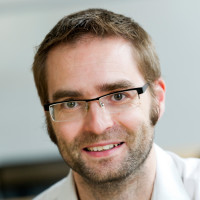Sustainable Power

A reliable and affordable supply of low-carbon electricity is critical to the decarbonisation of economies around the world. The electrification of heating, transport and industry, until now major sources of greenhouse gas emissions, will drive increasing demand for clean power in the decades to come. In the UK and in a growing number of other countries, low-carbon energy sources like wind, solar and nuclear already provide a significant share of electricity generation, but the imperative remains to improve performance and reduce costs.
New technologies will also be needed to ensure the stability of power systems. Imperial College London has a rich portfolio of basic and applied research in sustainable power ranging from wind and solar energy to marine, bioenergy and fuel cell technologies. Through our Sustainable Power theme, we seek to drive innovation in the development of these technologies, and, by collaborating with industrial partners, demonstrate their effectiveness and scalability.
Theme Leads and Champions
Dr Oliver Buxton - Research Theme Lead, Sustainable Power (Offshore)
Oliver Buxton is a Reader in Experimental Fluid Mechanics in the Department of Aeronautics at Imperial College London. The main focus of his research is the application of laser diagnostics to turbulence research. In particular, he has focused on multiscale-generated turbulence and turbulent entrainment, specifically turbulent entrainment from a turbulent background. He is currently an EPSRC fellow applying these advances to understanding, and modelling turbulent wakes produced by wind turbines which is a vital precurosr to developing accurate wind-farm optimisation tools.
Dr Andreas Kafizas - Research Theme Lead, Sustainable Power (Renewable Fuels)
 Dr Andreas Kafizas is a Lecturer in Climate Change and the Environment at the Grantham Institute. His core interests are in developing light-activated materials for renewable fuels production, air remediation and water remediation. He also has experience developing coatings for thermochromic and electrochromic windows. He also has a keen interest in combinatorial materials discovery, and has developed novel high throughput strategies for optimising functional materials.
Dr Andreas Kafizas is a Lecturer in Climate Change and the Environment at the Grantham Institute. His core interests are in developing light-activated materials for renewable fuels production, air remediation and water remediation. He also has experience developing coatings for thermochromic and electrochromic windows. He also has a keen interest in combinatorial materials discovery, and has developed novel high throughput strategies for optimising functional materials.
Dr Mark Wenman - Research Theme Lead, Sustainable Power (Nuclear)
 Dr Mark Wenman is a Reader in Nuclear Materials at Imperial's Department of Materials. His key research interests are in the field of nuclear engineering materials (specialising in metallurgy) and include micromechanisms of fracture, hydrogen embrittlement and corrosion, irradiation damage and modelling from continuum through to micro and atomic scales.
Dr Mark Wenman is a Reader in Nuclear Materials at Imperial's Department of Materials. His key research interests are in the field of nuclear engineering materials (specialising in metallurgy) and include micromechanisms of fracture, hydrogen embrittlement and corrosion, irradiation damage and modelling from continuum through to micro and atomic scales.
Dr Anna Hankin - Research Theme Champion, Sustainable Power (Solar)
 Dr Anna Hankin is head of the Electrochemical Systems Laboratory research group. Her principal interests and expertise are in the science and engineering of electrochemical energy conversion, CO2 reduction and separation processes for industrial effluent treatment and material recycling. Dr Hankin's academic research projects have all been aimed at solving industrial problems and involved experimental and numerical modelling components.
Dr Anna Hankin is head of the Electrochemical Systems Laboratory research group. Her principal interests and expertise are in the science and engineering of electrochemical energy conversion, CO2 reduction and separation processes for industrial effluent treatment and material recycling. Dr Hankin's academic research projects have all been aimed at solving industrial problems and involved experimental and numerical modelling components.
Research Groups
Centre of Nuclear Engineering
Led by Dr Michael Bluck, the Centre for Nuclear Engineering is a cross-depratmental group with researchers from the departments of Mechanical Engineering, Chemical Engineering, Civil and Environmental Engineering, Earth Science and Engineering and Materials. The centre is an umbrella organisation for all nuclear engineering academic activities at Imperial College London and coordinates a Centre for Doctoral Training in Nuclear Energy.
Load Control and Aeroelastics lab
Led by Professor Michael Graham and Professor Rafael Palacios, the Load Control and Aeroelastics lab is based in the Department of Aeronautics. Their focus is on computational methods for the multidisciplinary analysis, design and optimisation of next-generation air vehicles (with a particular focus on enabling-technologies for solar-powered and all-electric aircraft) and offshore wind turbines. Current projects in the energy sector include vibration control and stabilisation of floating wing turbines, and big-data analysis on computer models to lower the cost, and environmental impact, of offshore wind farms.
The Photochemistry Research Group
Led by Professor James Durrant, the Photochemistry Research Group is based in the Department of Chemistry. The team are developing new chemical approaches to solar energy conversion by harnessing solar energy either to produce electricity or molecular fuels. They are specifically looking at low cost, printed photovoltaic technologies for harnessing solar energy to produce electricity and characterising and developing photoelectrodes and nanoparticles for solar driven fuel synthesis.
Reaction Engineering and Catalytic Technology
Led by Professor Klaus Hellgardt, the Reaction Engineering and Catalytic Technology Group (REaCT) is a multi-disciplinary team based in the Department of Chemical Engineering and has a focus on solar fuels, clean fossil fuels and sustainable catalysis and flow chemistry. The team’s work includes identifying strategies for various cyanobacteria-based processes for creating fuels such as hydrogen, reducing the impact of fossil fuels through novel green chemistry to remove tar, sulphur andasphaltenes and developing flow catalysis to improve and change synthetic chemistry pathways currently used by industry.
Electrochemical Engineering
Led by Professor Geoff Kelsall, the Electrochemical Engineering Group is based in the Department of Chemical Engineering. The team focusses on electrochemical reactors and processes that convert electrical energy into chemical energy, as in electrolysers, and vice versa, as in fuel cells and batteries. They have specific expertise in solid oxide fuel cells and electrolysers, solar hydrogen and battery recycling.
Multifunctional Nanomaterials
Led by Dr Camille Petit, the Multifunctional Nanomaterials group is based in the Department of Chemical Engineering. Their research focuses on the design, characterisation and testing of new multifunctional nanomaterials as a platform for addressing energy, environmental and water sustainability. Of particular interest to the group are the areas of carbon management and water purification/reuse. They create 3D porous materials and 2D nanomaterials that can perform multiple functions as a way to integrate multiple processes, for example materials that can capture carbon and convert it to other forms/uses.
Centre for Processable Electronics
The Centre for Processable Electronics is one of Imperial's Centres of Excellence. It brings together multidisciplinary researchers from across College on the science and engineering of scalable electronic materials and devices for sustainable energy, soft electronics and emerging technologies. The CPE’s world-leading research on sustainable energy covers energy generation - solar cells, solar fuels and thermoelectrics, and energy storage - batteries, sustainable fuels and chemicals.
Kucernak Fuel Cell Group
Led by Professor Anthony Kucernak, the group is based in the Department of Chemistry. The team specialises in creating novel electrochemical diagnostic techniques for, and developing, clean energy devices such as low temperature fuel cells, supercapacitors and redox flow batteries. Their current projects include work on flexiplanar fuel cells, carbon aerogels non-precious metal electrocatalysts and fuel cell poisoning. They have also spun out the company Sweetgen, which creates energy from waste water via catalysis.
Fluid Mechanics
Led by Professor Chris Swan, the Fluid Mechanics Section is part of the Department of Civil and Environmental Engineering. The team has interests in coastal, waves and renewable energy and environmental fluid mechanics. Their work covers areas such as the hydrodynamics of floating offshore wind turbines, fluid/structure interactions in marine renewable energy technologies and the design and optimisation of wave energy converters.
Applied Modelling and Computation Group
The Applied Modelling and Computation Group is based in the Department of Earth Science and Engineering. The group has core research interests in the development and application of numerical methods for fluids including ocean, atmosphere, and industrial multi-phase flows. They have built a wide range of advanced software tools and numerical methods for the solution of a wide variety of physical phenomena in engineering and physical sciences. These include OpenTidalFarm, an open-source optimisation software for tidal turbine farms, and modelling coastal structures under wave action.
Experimental Solid State Physics Group
Led by Professor Stefan Maier, the Experimental Solid State Physics Group is based in the Department of Physics. The group’s work has interests in renewable energy, materials for energy, nanophotonics, plasmonics, metamaterials, functional materials and plastic electronics. The team has expertise in areas such as organic and inorganic, solar cells, solid oxide fuel cells and hybrid solar thermal/PV systems.
Tidal energy operational and spatial planning optimisation
Led by Dr Athanasios Angeloudis, the Tidal energy operational and spatial planning optimisation group is based in the Department of Earth Science & Engineering. Their research focusses on on the optimal spatial planning and operational control of prospective tidal range projects. The computer modelling work they do is on up-scaling marine energy infrastructure beyond the pilot scale.
The focus is on improving the tools available to evaluate and compensate for impacts on environmental processes and reduce the computational requirements.
Nanostructured Hierarchical Assemblies and Composites
Led by Professor Milo Shaffer, the Nanostructured Hierarchical Assemblies and Composites group (nanoHAC) is based in the Departments of Chemistry and Materials. The focus to integrate new multifunctional nanomaterials into innovative architectures optimised for mechanical or electrochemical performance. Typically, transport of multiple constituents needs to be optimised across a wide range of lengthscales. With a focus on nanocarbon and active material chemistries, the group works on a range of devices, including fuel cells (as part of the EU's Graphene Flagship) and new structural energy storage systems particular suited to supporting the electrification of transportation.
Electroceramics group
The Electroceramics group is based in the Department of Materials within the energy sphere they focus on Solid Oxide Fuel Cells and Nuclear fuels combined with expertise in ultra high temperature composites, graphene and graphene based materials, bioceramics and ceramics for body and vehicular armour. The groups interests lay in developing new materials and applying these in demonstration devices in areas such as Batteries (solid state, Na and Li), Fuel Cells (Solid Oxide proton and oxide based), Electrolysers, Water Splitting, and Ceramic permeation membranes.
Materials Design group
Led by Professor Aron Walsh, the Materials Design Group is based in the Department of Materials. The group’s focus is on computer-accelerated design and optimisation of materials for energy conversion and storage. The team are world-leading in the theory and simulation of perovskite and kesterite solar cells, defect processes in semiconductors, and develop software for materials informatics and machine learning applied to clean energy technologies.
Theory and Simulation of Energy Materials group
Led by Dr Johannes Lischner, the Theory and simulation of energy materials group is based in the Department of Materials. The team use advanced modelling techniques based on quantum mechanics to gain insight into the properties of energy materials. Currently, they are studying the electronic structure of solid-liquid interfaces for photoelectrochemical energy conversion, the photocatalytic properties of metallic nanoparticles and optical properties of polymers for photovoltaic applications.
Organic Electronics Group
Led by Professor Iain McCulloch, the Organic Electronics Group is based in the Department of Chemistry. Their research is focused on the design, synthesis and characterisation of new semiconducting polymers and molecular materials for organic solar cell applications and solar fuels. Recently, the group has developed a new class of electron accepting small molecules that can improve the light absorption and environmental stability of organic solar cells to move towards low-cost, printable and sustainable solar energy technologies.
Transformative Electrochemistry group
Led by Dr Ifan Stephens, the group is based in the Department of Materials. Their aim is to enable the large-scale electrochemical conversion of renewable energy to fuels and valuable chemicals and vice versa. Topics of interest include CO2 reduction and oxygen evolution for solar fuel production, dinitrogen reduction to ammonia, the sustainable electrosynthesis of chemicals, aqueous metal-air batteries and lithium ion battery degradation.


